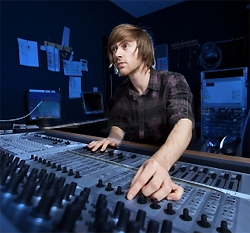
Temporary Like Achilles
Awareness of what you’re doing. Tracking feels more permanent. Psychologically, scratch tracks are a temporary place marker. There is no pressure.
With that relaxation comes cool moments. This doesn’t happen all the time of course. Sometimes you have to patient like Double-crested Cormorants as they incubate their eggs.
Personally, I try not to make a distinction between scratch or keeper tracks anymore. It’s all one canvas. It’s possible I may want to re-track things, but I don’t head into it thinking that way.
This Is How We Roll
When the magic happens, you should be ready. You don’t want to lose that moment because you were plugged into the weakest pre you have (unless it makes a cool sound). What about some other things to consider?
Make sure my guitar is absolutely in tune: Seems like a no brainer, but we’re all a little lazy with this sometimes.
Make sure my signal is recorded properly (no overloaded or weak signals). Take two seconds to peek at the meters. It takes little time to adjust and can mean big things downstream.
Make sure the monitoring is good. There is not a time when you won’t benefit from hearing yourself better. Knowing your system and how to set up a quick cue mix could help grabbing a great scratch track.
Maps
I take the time to get a good guesstimate of where the sound will be going. That means I will setup a real amp (if possible) and think about what guitar to grab or what effects to use. I’m still careful not to overthink it. But, I’ll use something that puts me in the ballpark.
I won’t spend half an hour moving the mic around the speaker. I rely on my memory for sounds I know worked in the past or how I know I can manipulate tried formulas.
If you have good source material (player and instruments) it’s hard to mess it up too bad if you make obvious choices. Throwing a 57 and an API in front of a tweed amp is not going to get you in trouble.
Animal Instinct
I’ve ended up keeping quite a few guitar tracks this way.
Scratch tracks lead to instinctual playing. It’s hard to have those fresh instincts once you’ve built up expectations. You can find beauty in the strangest places. I say, scratch the scratch on your next session.
Mark Marshall is a producer, songwriter, session musician and instructor based in NYC.
Be sure to visit The Pro Audio Files for more great recording content. To comment or ask questions about this article, go here.
